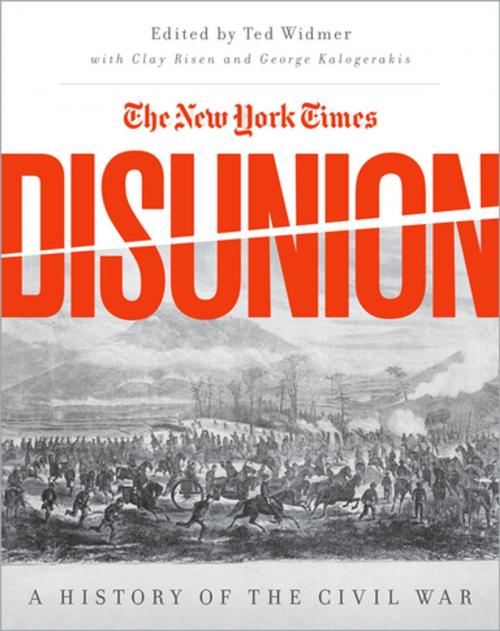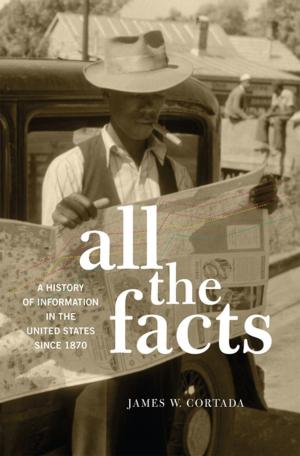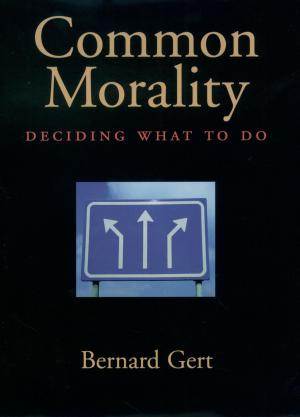The New York Times Disunion
A History of the Civil War
Nonfiction, History, Americas, North America, United States, Civil War Period (1850-1877)| Author: | ISBN: | 9780190621858 | |
| Publisher: | Oxford University Press | Publication: | September 13, 2016 |
| Imprint: | Oxford University Press | Language: | English |
| Author: | |
| ISBN: | 9780190621858 |
| Publisher: | Oxford University Press |
| Publication: | September 13, 2016 |
| Imprint: | Oxford University Press |
| Language: | English |
Between 2011 and 2015, the Opinion section of The New York Times published Disunion, a series marking the long string of anniversaries around the Civil War, the most destructive, and most defining, conflict in American history. The works were startling in their range and direction, some taking on major topics, like the Gettysburg Address and the Battle of Fredericksburg, while others tackled subjects whose seemingly incidental quality yielded unexpected riches and new angles. Some come from the country's leading historians; others from those for whom the war figured in private ways, involving an ancestor or a letter found in a trunk. Disunion received wide acclaim for featuring some of the most original thinking about the Civil War in years. For millions of readers, Disunion came to define the Civil War sesquicentennial. Now the historian Ted Widmer, along with Clay Risen and George Kalogerakis of The New York Times, has curated a collection of these pieces, covering the entire history of the Civil War, from Lincoln's election to Appomattox and beyond. Moving chronologically and thematically across all four years of hostilities, this comprehensive and engrossing work examines secession, slavery, battles, and domestic and global politics. Here are previously unheard voices-of women, freed African Americans, and Native Americans-alongside those of Lincoln, Grant, and Lee, portrayed in human as well as historical scale. David Blight sheds light on how Frederick Douglass welcomed South Carolina's secession-an event he knew would catapult the abolitionist movement into the spotlight; Elizabeth R. Varon explores how both North and South clamored to assert that the nation's "ladies," symbolic of moral purity, had sided with them; Harold Holzer deciphers Lincoln's official silence between his election to the presidency and his inauguration-what his supporters named "masterful inactivity"-and the effects it had on the splintering country. More than any single volume ever published, Disunion reveals the full spectrum of America's bloodiest conflict and illuminates its living legacies.
Between 2011 and 2015, the Opinion section of The New York Times published Disunion, a series marking the long string of anniversaries around the Civil War, the most destructive, and most defining, conflict in American history. The works were startling in their range and direction, some taking on major topics, like the Gettysburg Address and the Battle of Fredericksburg, while others tackled subjects whose seemingly incidental quality yielded unexpected riches and new angles. Some come from the country's leading historians; others from those for whom the war figured in private ways, involving an ancestor or a letter found in a trunk. Disunion received wide acclaim for featuring some of the most original thinking about the Civil War in years. For millions of readers, Disunion came to define the Civil War sesquicentennial. Now the historian Ted Widmer, along with Clay Risen and George Kalogerakis of The New York Times, has curated a collection of these pieces, covering the entire history of the Civil War, from Lincoln's election to Appomattox and beyond. Moving chronologically and thematically across all four years of hostilities, this comprehensive and engrossing work examines secession, slavery, battles, and domestic and global politics. Here are previously unheard voices-of women, freed African Americans, and Native Americans-alongside those of Lincoln, Grant, and Lee, portrayed in human as well as historical scale. David Blight sheds light on how Frederick Douglass welcomed South Carolina's secession-an event he knew would catapult the abolitionist movement into the spotlight; Elizabeth R. Varon explores how both North and South clamored to assert that the nation's "ladies," symbolic of moral purity, had sided with them; Harold Holzer deciphers Lincoln's official silence between his election to the presidency and his inauguration-what his supporters named "masterful inactivity"-and the effects it had on the splintering country. More than any single volume ever published, Disunion reveals the full spectrum of America's bloodiest conflict and illuminates its living legacies.















